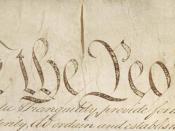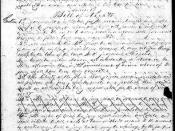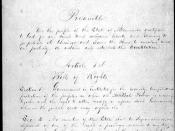Constitutions
Though a large amount of research examines developing societies and the individuals and policies within them, one may ask, "What does state have to do with constitution?" Well, constitution is a structural characteristic of a state--which can be primarily used to maintain organization within a state. Whether it is short, long, or leaves information out that may seem impertinent to a country's current well-being, a constitution does its duty.
Whether written or unwritten, constitutions hold a lot of information. They are even considered "power maps" for political systems by their helping to explain the delegations, limitations, and relationships of power in a given state. Holding important information does not necessarily have to make a constitution long. The U.S. for example has a very short constitution, while India's is rather lengthy. This, in turn, does not necessarily affect how "successful" the government may be. It is a well-known fact that the U.S.
government is very powerful, despite its length. There is also no limit on how many documents need be included in a constitution, which can, in fact, vary from one to infinity.
Despite the many different variations in constitutions, one thing remains the same. They all have common ground in the fact that limits are being made on what government can do. Not to be read with a negative connotation, this limiting is for the basic function of the organization of a state.
L.A. 2
This brings up another question: "What do constitutions actually do?" In fact, less value continues to be placed on the importance and necessity of constitutions. This is due to the fact that, in many cases, they leave out primary elements of what a country may (today) readily include into its function of government. For example, the U.S. Constitution's does not even mention political parties...


